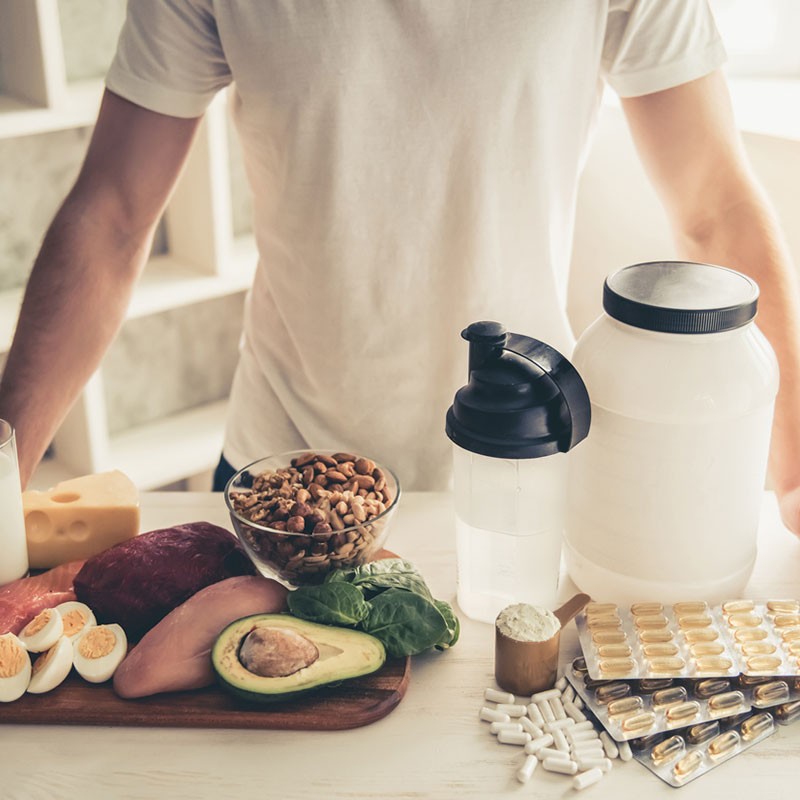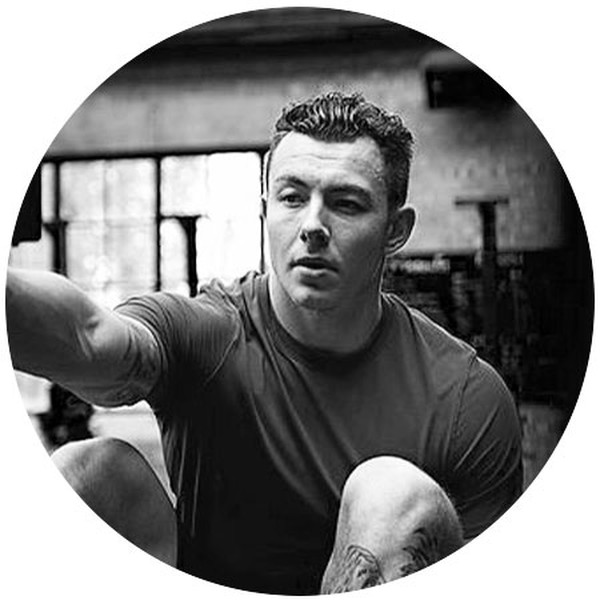A Complete Guide To Getting More Protein
If you’re not a body-builder, why would you need a protein powder?
Lee: Protein is one of the three macronutrients, alongside carbohydrates and fats. In health and fitness, it’s main role is repairing and building muscle tissue. It is also an important component for each cell in our body, specifically hair and nails. While protein powder is not an essential supplement, it definitely helps if you struggle to get a high amount of protein in your daily diet.
As a guide for someone who is training regularly (and that means an hour’s worth of exercise three to four times a week), you should aim to consume 1g of protein per kg of bodyweight as a bare minimum. If the aim is to increase lean muscle tissue then maybe increase this intake to 1.5g per kg of bodyweight.
For those not consuming enough protein whilst exercising you could experience loss of muscle mass, muscle fatigue as well as weakness to skin, hair and nails. If you have a very balanced diet and you are confident you are hitting your protein target then protein shakes aren’t a necessity.
So what are protein targets and how are they set?
Lee: Protein targets are based upon how active an individual is and what their training goals are. If someone is very active and their aim is to increase muscle mass then your calorie intake should be higher and an increase in protein will play a part in that. Elite athletes and those that are incredibly active (i.e. training for any sort of marathon or iron man) should aim for a target 1.8-2g of protein per kg of bodyweight. An 80kg athlete should aim for 140g-160g of protein in their daily diet.
Should runners take protein powder too?
Lee: Whether they’re into running or resistance training, you’ll everyone who works out needs some sort of protein supplement to support their training, if they're struggling to get in enough protein through their food.
Someone who does more resistance training will have an increased need for it over endurance athletes but even so, there will still be a requirement because the demand on the body is high and your body will need all the recovery you can get which is in part what protein powders can provide. They are a recovery fuel.
Running is still an activity and exercise that burns calories. Muscles are being used, yes granted slightly differently to resistance training but there still needs to be some sort of recovery after your run is finished and protein will definitely aid with this. If a runner burns say 1000 calories in their run, but their aim is purely fitness and performance and not weight loss, then that's 1000 calories they need to make up with food and having a protein shake can quickly and easily remedy this.
Why do so many fitness professionals use it?
Lee: One of the reasons is convenience. Protein powders offer a quick and easy way to get some extra protein in your diet. If you don't want to be eating a ton of chicken breasts or eggs to hit that protein target, a protein shake is great to get you to your goal protein consumption.
Toby: As well as convenience, most professionals use protein powders when they are looking to increase their muscle mass. Protein is the foundation for building muscle so, when you are training to increase your size, you need to increase your protein intake and that’s when protein powders come into play.
How do you take protein powder?
Lee: I take it in ready-made shakes, protein bars and blended shakes. I’m an ambassador of Barebells, which has the most incredible-tasting protein bars out there. The shakes also taste like milkshakes and are lactose free. If I make my own shake using a blender, I’ll always opt for a nut butter-based one. An easy recipe would be a blend of almond or oat milk, a protein powder, some banana, peanut butter and a dash of cinnamon.
Toby: I take protein powder at the end of every workout which is normally in the morning so I might have a breakfast shake, especially if I am doing a high-energy gym session. If you are not a huge fan of a water-and-powder shake, there are tons of recipes out there – from overnight oat bowls to protein-powder brownies – making it really easy to consume extra protein in an interesting way.
Will it make you bulk up?
Lee: The connection between protein powders and bulking is total nonsense. To bulk up, the most important thing is to be in a calorie surplus (i.e. repeatedly eating more calories than you burn in a single day) and overload muscles by resistance training. Men have higher concentrations of testosterone in their bodies than females, so you could say men will find it easier to gain lean muscle. Taking protein may speed up the process of muscle protein synthesis (the naturally occurring process in which protein is used to repair damaged muscle tissue) but this can also be done with a high-protein diet of foods.
Why are some protein powders so expensive – and are they worth the money?
Toby: I believe you get what you pay for. Some companies will sell poor-quality protein at a lower price to get sales. In most cases, the ingredients in these powders have a low ‘bioavailability’. This means it isn’t always what it says on the tin. Look for protein powders that are third-party tested. They do come at a higher price but you get what they say and they are worth it for the science behind them and the clean ingredients they use.
Lee: A lot of companies within the fitness industry may fluff up their brand a bit, claiming it does more than it actually does, and it is true that they may pump the powder with ingredients it probably doesn’t need. My advice is to find a popular brand you like the taste of and see how your body reacts. There are no negative side effects when using protein powders. Some people may not be able to digest protein in whey form (whey is a protein building block of milk, along with casein), so if that is case then opt for a vegan version. If too much protein is taken, the body will just excrete this, so it’s typically not harmful at all.
So what are the best brands?
Lee: Barebells protein bars and ready-made protein shakes are my go-to. Innermost’s protein powders are great tasting with science-backed ingredients. It has four different types of powder, depending on your training goal, and a vegan option. Kin Nutrition is also great tasting and does vegan options. The flavours are amazing and not too grainy – a common problem with some brands. It also mixes very well into a shake. Form Nutrition offers a vegan protein but, unlike most vegan proteins, it tastes incredible. It’s not too grainy in texture and doesn’t taste like earth.
Toby: Always look for third party-tested protein such as Organic Protein by MusclePharm or Raw Organic Protein by Garden of Life. I always go for organic where possible, so that my body isn’t consuming any unnecessary chemicals and pesticides.
Follow Lee on Instagram.
Follow Toby on Instagram.
Find out more about Third Space and Kobox.
DISCLAIMER: We endeavour to always credit the correct original source of every image we use. If you think a credit may be incorrect, please contact us at [email protected].




